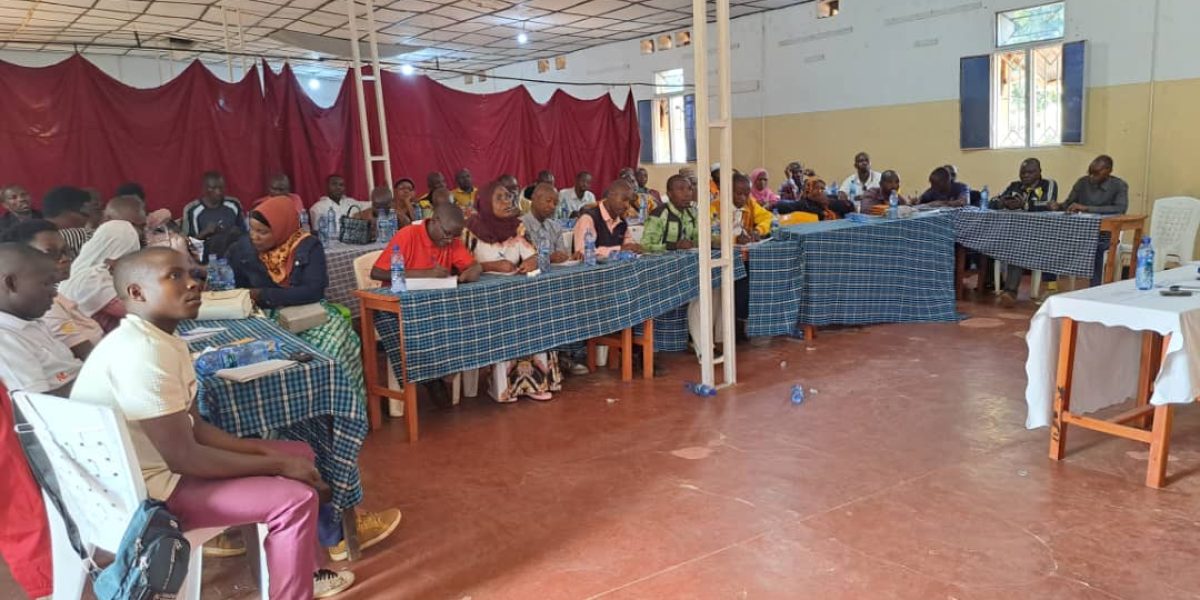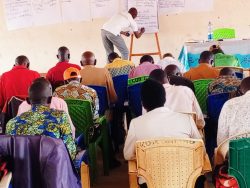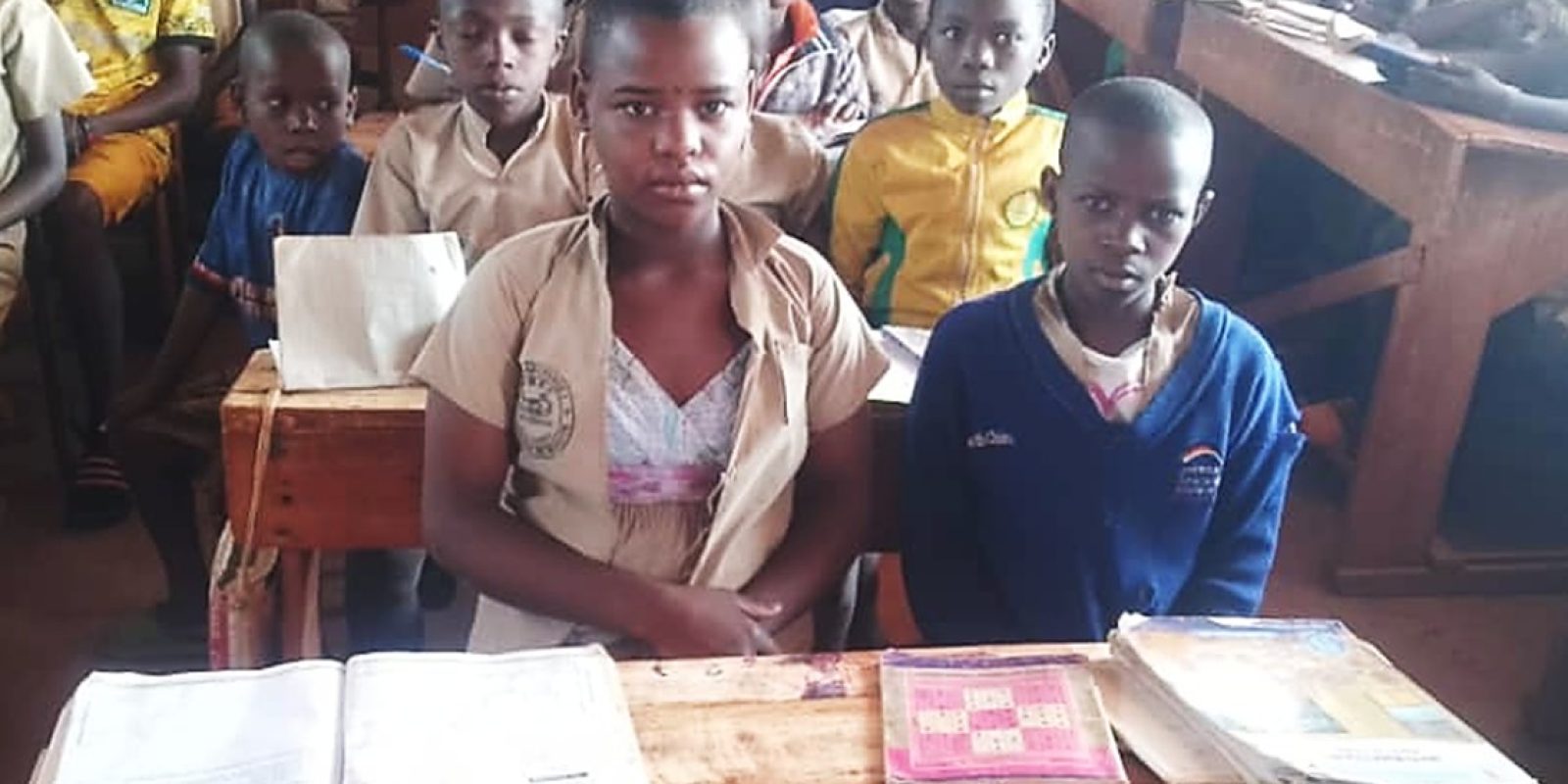
From August 26 to September 4, 2025, more than 400 members of the School Management Committees (CGE) were trained in entrepreneurship and project management in the communes of Giteranyi, Muyinga, Kinyinya, Kayogoro, Nyanza, and Gisuru. The objective: strengthening their capacities to support schools’ self-promotion through income-generating activities.
As part of an innovation dynamic serving education, the training program under the resilience component, implemented within the Kaze Twiyunge consortium by JRS Burundi-Tanzania and funded by the European Union, targeted CGEs as key actors in local school development. Over four days in the four communes, participants attended modules on entrepreneurship, project management, cross-cutting themes, and business plan development.
Training adapted to local realities
In Giteranyi and Muyinga, 100 CGE members (75 men and 25 women) benefited from this initiative between September 1 and 4. The sessions, held in commune headquarters, alternated between lectures, practical workshops, and technical support for creating entrepreneurial microprojects.
In Kinyinya, 51 members (including 5 women) were trained from August 26 to 29. The focus was placed on generating school-adapted entrepreneurial ideas, leadership, marketing, and validating concrete business plans.
Targeted support for returnees
In the communes of Kayogoro and Nyanza-Lac, 150 participants gathered around the theme: “Entrepreneurship at the Heart of Innovation.”
 The goal was clear: to foster the sustainable school reintegration of repatriated children through economic projects carried out by CGEs, thereby contributing to reducing school dropouts.
The goal was clear: to foster the sustainable school reintegration of repatriated children through economic projects carried out by CGEs, thereby contributing to reducing school dropouts.
“This is the first time CGEs have attended such training. It helps us set up income-generating activities (IGAs) to self-finance the school’s needs,” testified the president of the CGE of ECOFO Vumwe I.
In Gisuru, 49 CGE members were guided through an in-depth reflection process aimed at identifying innovative entrepreneurial ideas. This culminated in the development of bankable business plans, ready for funding.
“These IGAs will ease parents’ burden and enable schools to meet their needs without depending on outside aid,” highlighted CGE presidents Gabriella Nabucumi and Denis Baniyeyezako.
A strategy for school autonomy
Through these trainings, JRS is focusing on strengthening local capacities to transform CGEs into true drivers of development. With the promised financial support, these projects should soon come to life, bringing concrete solutions to the needs of schools and children, especially in areas affected by the return of repatriates.
As expressed by a representative of the General Directorate of Repatriation, Resettlement and Reintegration (DGRRR) in Ruyigi:
“These trainings and the financial support will allow schools to cover certain needs without external help. It is an important step towards their autonomy.”



